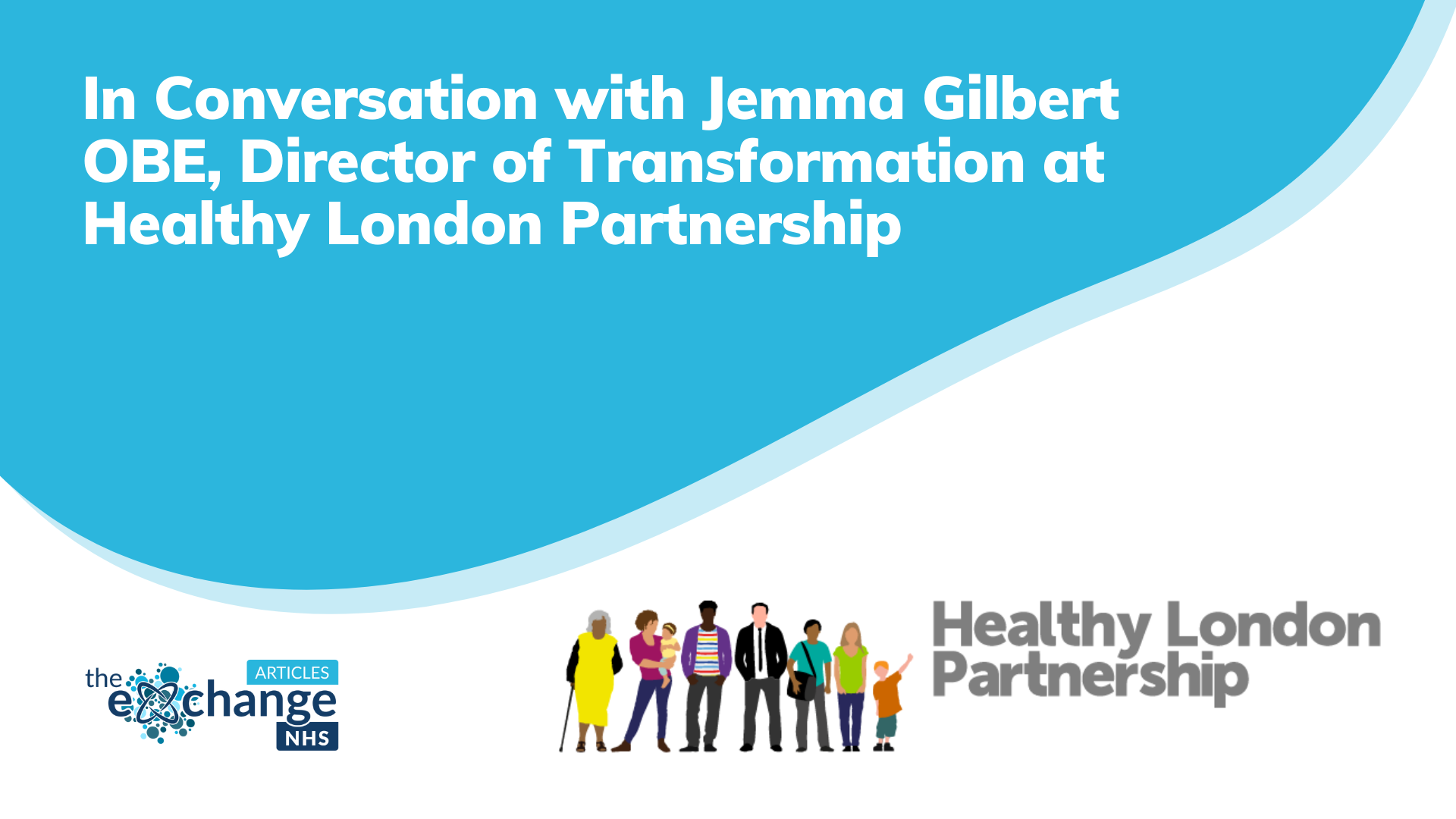
Starting in healthcare straight out of university, Jemma moved into the NHS management trainee scheme which fast tracked her development. With an understanding and appreciation of the breadth of the NHS, Jemma was able to boost her career with direction on the technical skills needed to be a leader in the NHS.
“That’s a really good way to explore the whole system and then work out, where are you going to provide that unique fit in terms of your own skills and the things that drive you.”
Loving every role she’s worked for different reasons, Jemma has worked a diverse career as she’s worked towards a clarity on what she wants to achieve in the context of the NHS.
Now focusing on addressing inequalities and promoting inclusion within the Healthy London Partnership, Jemma is working towards addressing some of the issues that she saw while growing up.
“I spend a lot of time working with different vulnerable and marginalised groups and trying to ensure that they get equitable access to health care, and that their health needs are advocated for and addressed.”
Recognised for her work with the Homeless during COVID-19, Jemma was awarded an OBE while working as the Incident Director for London and driving the initiative, alongside others, to bring people off the streets and into hotels – ensuring they were able to self-isolate.
With about 5000 people in different hotels around London, housing colleagues working on acquiring new hotels and Jemma’s team working on supplying and supporting hotel guests with healthcare – this was a massive project that contributed to the wellbeing of thousands.
Perhaps more importantly, it set into place a system that, whether they were in a hospital setting or on the street or in a hotel, would identify and support those most in need throughout the COVID-19 pandemic.
“And as a result of that, and as a result of those measures we put in, we didn’t see the outbreaks that were seen in other world cities for this population. So, we did save a lot of lives.”
Working with technical leaders within the NHS on a daily basis, I’m very familiar with the sheer volume of amazing and advanced technical solutions to real-world healthcare challenges.
These tech solutions, that bring families together and drive real impact for the end-user, are revolutionary. Many of the examples manages to keep healthy people out of hotspots for infection while allowing them to maintain contact with those infected.
For those who use technology in their everyday life and have access to the infrastructure to enable that technology, it’s a welcomed, yet expected change.
But for the 1.9 million households with no access to the internet and tens of millions more reliant on pay-as-you-go services to make phone calls or access healthcare, education and benefits online, it’s a reminder of the growing ‘digital divide’ that Jemma and her team are working hard to address.
“There are a huge number of families, about one in five families in London, who struggle to homeschool their children because of digital access.”
Although this should never be a reason not to pursue digital solutions, Digital Transformation Specialists should be aware of the additional actions that they can include to help close the gap for those who don’t have easy access to digital solutions.
“I think we’re learning about the value of digital services in terms of productivity and efficiency for clinicians in working with their patients, but we’re also learning about how much both clinicians and patients are missing some of that face to face interaction and how it’s not meeting their needs.”
What Jemma has found is that for those groups who are often missed by the digital solutions, advocacy and face-to-face support from peers are really effective in helping them get access.
Already seeing some challenges for HIV clinicians who are reporting very clearly that there is some of their patients that will move backwards without that more personal touch, Jemma and her team are working hard on trying to recreate that personal element while not losing the benefit, the value, the efficiency and productivity of a digital solution.
The trick then is to direct that there are those groups who need to see you. So I think we’ll see services adapting to that over the next year.”
Leaders who have a strong sense of purpose have always resonated with Jemma. Coupling that strong sense of purpose with strong social values, for Jemma, is the hallmark of good leadership within the NHS. Most importantly, however, is for a leader to know what they can achieve.
“Having a strong goal that you can move people towards is important. A desire to question all the kind of perceived truths in terms of what’s the right thing to do, how to act.”
Often being labelled a maverick, Jemma thrives when she works around the established norms. With a good mix of curiosity and creativity, Jemma is able to speak truth to power and question the way things are being done – something of particular importance in a clinical governance context.
Finally, Jemma puts increasing value on the importance of networking for leaders in the NHS.
In a job all about partnerships and creating a spirit of togetherness and willingness to work through the differences between organisations, in order to forge solutions together for the population – a leader must be able to create that sense of trust in relationships.
“That ability to create that sense of trust and partnership and relationship with people is going to be much, much more important as we see the NHS move towards integrated care systems.”